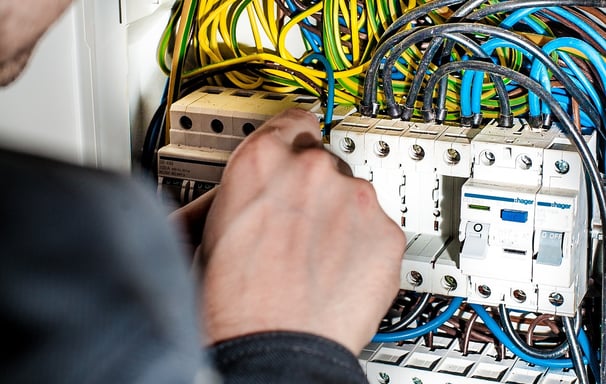Electrical qualification
Electrical Qualification Training: Working Safely on Installations
Mandatory for anyone working near electrical installations, electrical certification training aims to prevent the risk of accidents. It ensures that personnel have the necessary knowledge to work safely.


Targeted Sessions for Each Type of Intervention
Our electrical certification training courses are designed in accordance with the NF C18-510 standard, which governs work on electrical installations to ensure the safety of people and property. Open to both electricians and non-electricians (maintenance staff, technicians, forklift operators, supervisory staff, etc.), they are adapted to each level of intervention: low voltage (LV), high voltage (HV), live work, live work, lockout operations, verification or simple site supervision near electrical installations.
Each session begins with a review of the fundamentals of electricity (concepts of current, voltage, short circuit, insulation, etc.) before addressing specific hazards: electrification, electrocution, electrical fires. Trainees are trained to identify risk areas, assess voltage levels, use personal protective equipment (insulating gloves, face shield, insulating mat, specific tools) and implement safety procedures: lockout, power off, voltage-free verification, work area marking.
The training also includes concrete cases and practical scenarios allowing participants to apply professional actions in complete safety: simulated interventions on electrical cabinets, emergency maneuvers, verification of the conformity of installations. The objective is to develop the right reflexes when faced with common or exceptional situations.
At the end of the training, a theoretical assessment (MCQ) and a practical assessment are used to determine whether the trainee is eligible to obtain a certification certificate, which the employer can formalize. This certificate certifies that the trainee has mastered safety procedures and can safely work on or near electrical installations. These certifications are essential to comply with current legislation and ensure a safe and compliant working environment.
